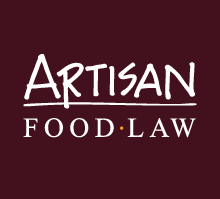Artisan Food Law: Why Artisan Food Law?
1 Introduction
We should be clear from the start that there is no such thing as 'artisan' food law. This may come as a surprise, though probably not. The reality is that the law which applies to the big industrial food processor is the very same as that which applies to the artisan and small-scale food producer. It is simply the context that changes and the way in which food law is interpreted and applied.
There is no getting away from the fact that artisan and small-scale food producers face two significant disadvantages.
First, the weight of regulation that may reasonably be justified in the case of industrial and commodity food production invariably feels like an unreasonable burden when placed on the artisan and small-scale food producer.
In 2005 the Hampton Review found the “most worrying aspect of research on the burden of regulation is the extent to which burdens are felt disproportionately in smaller businesses.” There has been no significant attempt to redress this imbalance since 2005.
Second, the big food processors have the resources and capacity both to employ professionals with regulatory expertise and seek advice from lawyers who often charge around £300 plus per hour, rates that are unthinkable to the artisan and small-scale producer.
Artisan Food Law will look at relevant law from the perspective of artisan and small-scale food producers. We aim to help redress the imbalance by providing easy access to important law and practical help in solving problems. We provide a comprehensive and authoritative food law resource that caters for those simply interested to explore food law as well as those with a real need to know. Subscribers can focus on content that really matters and which, most importantly, is kept up to date in a timely, proactive and informative way.
The Artisan Food Law Library contains all the technical stuff, and some may find it a hard read. The Blog provides a more accessible introduction to more topical issues. You can comment on the Blog, raise issues and maybe get a response.
Subscribers also get access to a special ‘Ask a Question?’ service where Artisan Food Law will answer your question to help in solving the problem with which you are grappling. You can also engage with @artisanfoodlaw on Twitter and Facebook.
Artisan Food Law provides information, practical tips and signposts to other recognised sources of information. All reasonable efforts are made to keep Artisan Food Law accurate and up to date, but no guarantee or warranty is provided that the content on this website is either accurate or up to date.
Finally, nothing on this website constitutes legal advice. You must satisfy yourself that the information provided on this website is accurate and up to date before acting in reliance on any information provided and take legal advice from a practising lawyer on how it applies to you and the circumstances in which you may find yourself.
2 Categories of Food Law
Food law falls into three main categories. Specialist food law is divided into two categories, that which applies to all food businesses (horizontal law) and that specific to a particular food business (vertical law). The third category is more general law, such as the law of contract, employment law, intellectual property law, etc., which apply to businesses of all descriptions.
Artisan Food Law, with a small number of exceptions, focuses on horizontal and vertical food law. In future developments, coverage will reflect the priorities of subscribers and users from feedback received.
The expansion of food law has been considerable over the last 20 years. The overwhelming majority originated during the years the UK was a member of the European Union and, since Brexit, most of this law remains in force as ‘retained EU law’.
On 31 December 2020, the end of the Brexit transition period, a snapshot of EU law as it then applied to the UK was taken and enshrined in domestic law. It forms a body of law known as ‘EU retained law’ that will remain in force until amended or repealed. UK food law will likely retain its origins in EU law for many years to come.
3 Access to Artisan Food Law
You can access the information provided in several ways. Search the site using simple keyword(s), browse by subject area or special areas of interest, such as ‘Bakery’ or ‘Dairy’.
The introductory information contained in the Artisan Food Law Library can be accessed free of charge and a subscription provides access to an authoritative legal resource and ‘Ask a Question?’
Finally, while we work hard to ensure everything is up to date and working, please do let us know if you find anything amiss, use the contact form or drop a brief note to us at info@artisanfoodlaw.co.uk.




